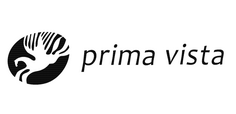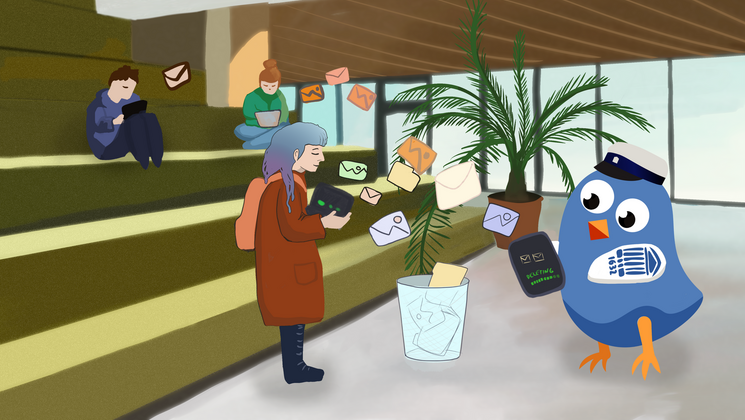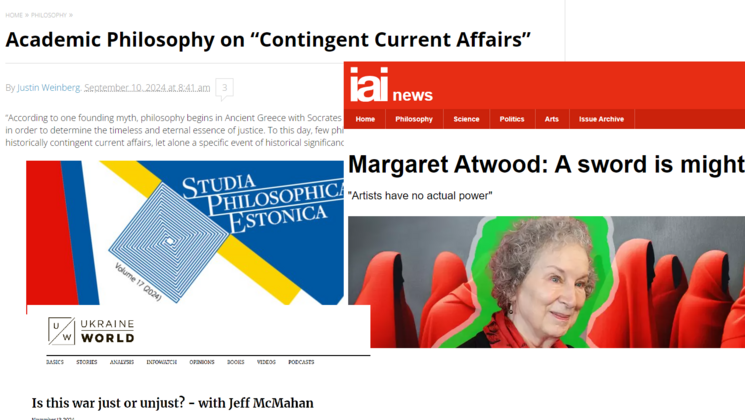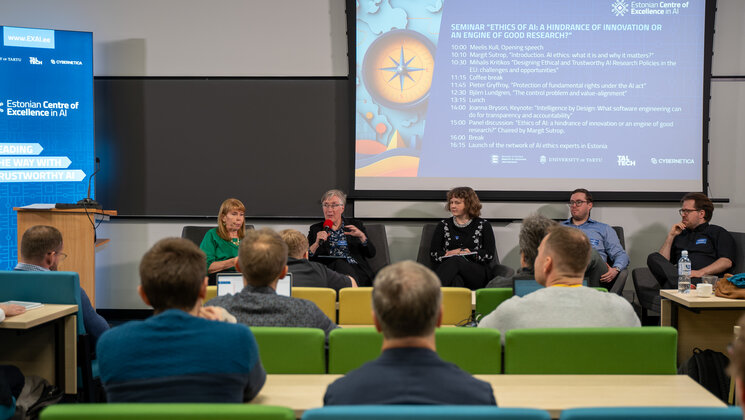-
Faculty of Arts and HumanitiesDean's Office, Faculty of Arts and HumanitiesJakobi 2, r 116-121 51005 Tartu linn, Tartu linn, Tartumaa EST0Institute of History and ArchaeologyJakobi 2 51005 Tartu linn, Tartu linn, Tartumaa EST0Institute of Estonian and General LinguisticsJakobi 2, IV korrus 51005 Tartu linn, Tartu linn, Tartumaa EST0Institute of Philosophy and SemioticsJakobi 2, III korrus, ruumid 302-337 51005 Tartu linn, Tartu linn, Tartumaa EST0Institute of Cultural ResearchÜlikooli 16 51003 Tartu linn, Tartu linn, Tartumaa EST0Institute of Foreign Languages and CulturesLossi 3 51003 Tartu linn, Tartu linn, Tartumaa EST0School of Theology and Religious StudiesÜlikooli 18 50090 Tartu linn, Tartu linn, Tartumaa EST0Viljandi Culture AcademyPosti 1 71004 Viljandi linn, Viljandimaa EST0Professors emeriti, Faculty of Arts and Humanities0Associate Professors emeriti, Faculty of Arts and Humanities0Faculty of Social SciencesDean's Office, Faculty of Social SciencesLossi 36 51003 Tartu linn, Tartu linn, Tartumaa EST0Institute of EducationJakobi 5 51005 Tartu linn, Tartu linn, Tartumaa EST0Johan Skytte Institute of Political StudiesLossi 36, ruum 301 51003 Tartu linn, Tartu linn, Tartumaa EST0School of Economics and Business AdministrationNarva mnt 18 51009 Tartu linn, Tartu linn, Tartumaa EST0Institute of PsychologyNäituse 2 50409 Tartu linn, Tartu linn, Tartumaa EST0School of LawNäituse 20 - 324 50409 Tartu linn, Tartu linn, Tartumaa EST0Institute of Social StudiesLossi 36 51003 Tartu linn, Tartu linn, Tartumaa EST0Narva CollegeRaekoja plats 2 20307 Narva linn, Ida-Virumaa EST0Pärnu CollegeRingi 35 80012 Pärnu linn, Pärnu linn, Pärnumaa EST0Professors emeriti, Faculty of Social Sciences0Associate Professors emeriti, Faculty of Social Sciences0Faculty of MedicineDean's Office, Faculty of MedicineRavila 19 50411 Tartu linn, Tartu linn, Tartumaa ESTInstitute of Biomedicine and Translational MedicineBiomeedikum, Ravila 19 50411 Tartu linn, Tartu linn, Tartumaa ESTInstitute of PharmacyNooruse 1 50411 Tartu linn, Tartu linn, Tartumaa ESTInstitute of DentistryL. Puusepa 1a 50406 Tartu linn, Tartu linn, Tartumaa ESTInstitute of Clinical MedicineL. Puusepa 8 50406 Tartu linn, Tartu linn, Tartumaa ESTInstitute of Family Medicine and Public HealthRavila 19 50411 Tartu linn, Tartu linn, Tartumaa ESTInstitute of Sport Sciences and PhysiotherapyUjula 4 51008 Tartu linn, Tartu linn, Tartumaa ESTProfessors emeriti, Faculty of Medicine0Associate Professors emeriti, Faculty of Medicine0Faculty of Science and TechnologyDean's Office, Faculty of Science and TechnologyVanemuise 46 - 208 51003 Tartu linn, Tartu linn, Tartumaa ESTInstitute of Computer ScienceNarva mnt 18 51009 Tartu linn, Tartu linn, Tartumaa ESTInstitute of GenomicsRiia 23b/2 51010 Tartu linn, Tartu linn, Tartumaa ESTEstonian Marine Institute0Institute of PhysicsInstitute of ChemistryRavila 14a 50411 Tartu linn, Tartu linn, Tartumaa EST0Institute of Mathematics and StatisticsNarva mnt 18 51009 Tartu linn, Tartu linn, Tartumaa EST0Institute of Molecular and Cell BiologyRiia 23, 23b - 134 51010 Tartu linn, Tartu linn, Tartumaa ESTTartu ObservatoryObservatooriumi 1 61602 Tõravere alevik, Nõo vald, Tartumaa EST0Institute of TechnologyNooruse 1 50411 Tartu linn, Tartu linn, Tartumaa ESTInstitute of Ecology and Earth SciencesJ. Liivi tn 2 50409 Tartu linn, Tartu linn, Tartumaa ESTProfessors emeriti, Faculty of Science and Technology0Associate Professors emeriti, Faculty of Science and Technology0Institute of BioengineeringArea of Academic SecretaryHuman Resources OfficeUppsala 6, Lossi 36 51003 Tartu linn, Tartu linn, Tartumaa EST0Area of Head of FinanceFinance Office0Area of Director of AdministrationInformation Technology Office0Administrative OfficeÜlikooli 17 (III korrus) 51005 Tartu linn, Tartu linn, Tartumaa EST0Estates Office0Marketing and Communication OfficeÜlikooli 18, ruumid 102, 104, 209, 210 50090 Tartu linn, Tartu linn, Tartumaa EST0Area of Vice Rector for Academic AffairsOffice of Academic AffairsUniversity of Tartu Youth AcademyUppsala 10 51003 Tartu linn, Tartu linn, Tartumaa EST0Student Union OfficeÜlikooli 18b 51005 Tartu linn, Tartu linn, Tartumaa EST0Centre for Learning and TeachingArea of Vice Rector for ResearchUniversity of Tartu LibraryW. Struve 1 50091 Tartu linn, Tartu linn, Tartumaa EST0Grant OfficeArea of Vice Rector for DevelopmentCentre for Entrepreneurship and InnovationNarva mnt 18 51009 Tartu linn, Tartu linn, Tartumaa EST0University of Tartu Natural History Museum and Botanical GardenVanemuise 46 51003 Tartu linn, Tartu linn, Tartumaa EST0International Cooperation and Protocol Office0University of Tartu MuseumLossi 25 51003 Tartu linn, Tartu linn, Tartumaa EST0Area of RectorRector's Strategy OfficeInternal Audit Office
The exhibition "Poetics of Survival" brings us the Umwelten of animals
A multidisciplinary student exhibition emerged under the leadership of Timo Maran, Professor of Ecosemiotics and Environmental Humanities, as a result of an interdisciplinary research project and a semiotics master's course. The course combined semiotics, natural sciences, and methods of creative inquiry. The exhibition, opened on 9 May, presents the Umwelten of animals to the public. It is also part of the Prima Vista and the European Capital of Culture Tartu 2024 programmes and will remain open until 20 June.
The mass extinction of species is one of the most significant manifestations of the global environmental crisis. Often, we are unaware of these disappearing species because there are no cultural representations or expressions about them. Therefore, the environmental crisis is not only a topic for the natural sciences, but also a question of deep cultural patterns, texts, and interpretations necessary for understanding these changes in the nature.
The exhibition is the result of an interdisciplinary research project and a two-year master's course titled "Umwelt Analysis and Animal Representations". The course combined the Umwelt theory, known in semiotics, with scientific knowledge about other species, and methods of creative inquiry. Jakob von Uexküll's theory describes the subjective worlds or Umwelten of organisms, revealing the meaning(s) of the world through the perspectives of different living beings. Thus, the common goal of the artworks is to express the Umwelt of animals through cultural means. Viewers are presented with thirteen students’ works in different genres — poetry, paintings, artistic objects, sound, and video installations. The main organiser of the exhibition, Professor of Ecosemiotics and Environmental Humanities Timo Maran emphasises that "Our main aim is to show how combining science and creativity enables the transmission of skills that allow each of us to shape new and more sustainable cultural patterns."
The exhibition was opened with an English-language panel discussion, focusing on the poetics of survival, endangered species, linking science and creative culture, and inclusive teaching methods. The discussion featured students Marta Kucza, Robertho Paredes and Oscar Miyamoto, as well as Professor Timo Maran and Jane Remm.
The project and exhibition "Poetics of Survival" are part of the international literature festival Prima Vista and the main programme of the European Capital of Culture, Tartu 2024. The development of the course methodology is part of the Estonian Research Council grant "Meanings of endangered species in culture: ecology, semiotic modelling, and reception“ within which the conference "Traces of Extinction: Species Loss, Solastalgia, and Semiotics of Recovery" will take place on 5–7 June 2024. The conference focuses on the cultural, subjective, and semiotic aspects of extinction and is also part of the Nature Creativity Festival.
There is a detail of the artwork "Memory Catcher" by Oscar Miyamoto on the photo.


The exhibition "Poetics of Survival"

Digital Cleanup Month: clean your inbox this week

Philosophy in Action: Special Issue on the Russia-Ukraine War Gains Global Recognition

